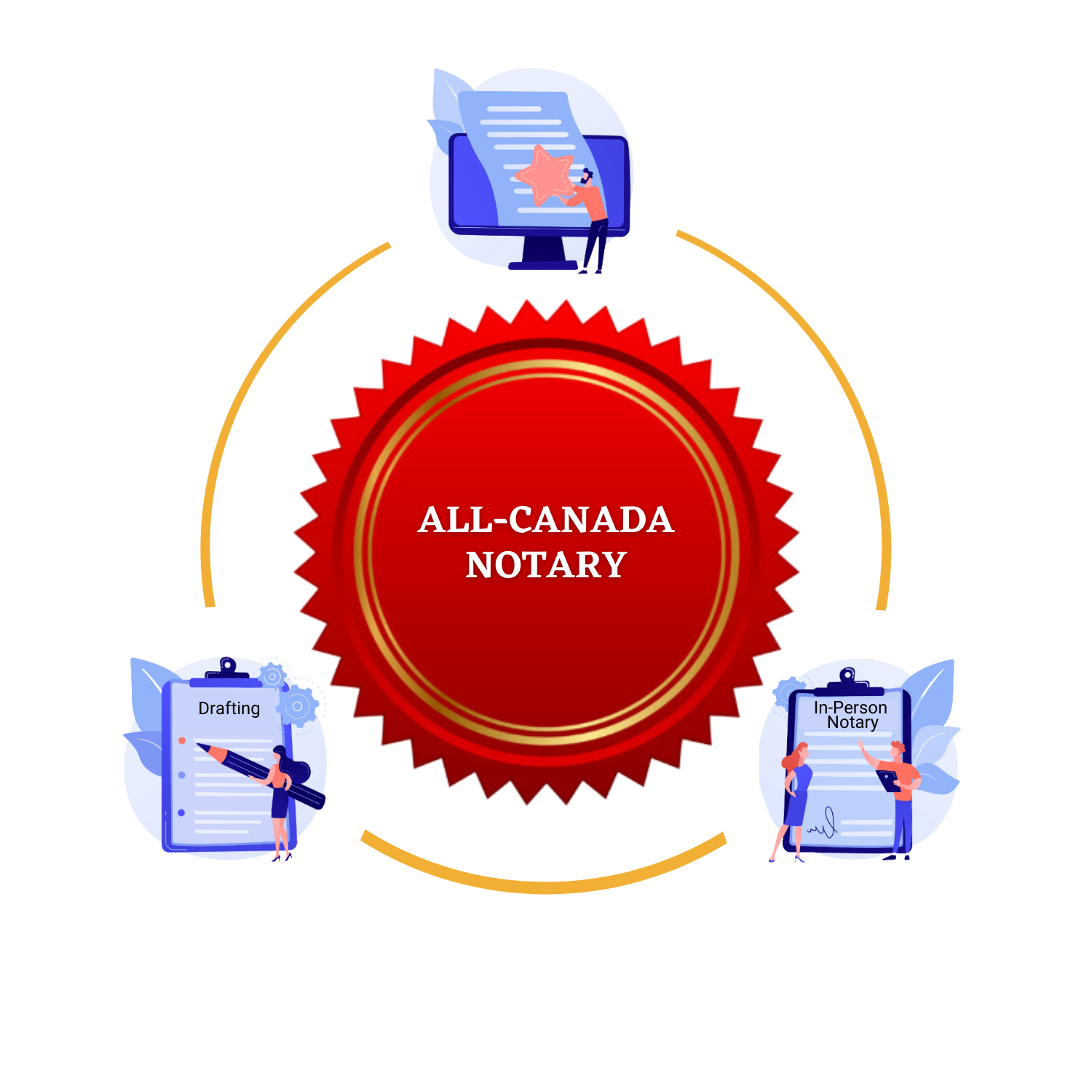
What is an affidavit?
An affidavit is a legally binding declaration in which a witness (also known as the affiant) swears that certain assertions are true. Affidavits are often used in court proceedings, but they may also be utilized in a wide variety of other contexts. While signing an affidavit, you must keep in mind the following points:
- You must remember that whatever you say must be truthful in sworn declarations.
- You’re not saying what you think; you’re saying what you already know. Facts should be presented here.
- Making an assertion about what you think to be true is permissible only if your statement makes it clear that it’s just your own opinion.
When do you Need Affidavit?
Affidavit statements are legally binding and must be signed by the affiant in front of a Notary Public or Commissioner of Oaths. The attestation of facts is necessary when you are filing a lawsuit, whether it is in provincial or federal court. An affidavit also serves as an exhibit to a legal document.
For example: If you wish to be married in some other country, you may need to show that you haven’t been engaged previously (or that you are legitimately divorced) in order for the other nation to grant you a marriage certificate. An affidavit of service is necessary to prove that you are a Canadian citizen and that you were legally married outside of Canada.
The affidavit should contain information that you know firsthand, and not information that you obtained through hearsay. Depending on the purpose for which you require an affidavit, you may need to supply different information.
Types of Affidavits
There are many types of affidavits used for a variety reason in Canada. Each one is slightly different and will contain information unique to that jurisdiction.
Affidavits in court
Due to time constraints or because witnesses are unavailable for oral testimony, affidavits may be used to support written motions or to provide evidence in a judicial procedure when witnesses are unavailable for oral testimony.
Affidavit for self-proving one’s own will
A person’s signature on a will is notarized at this point. At a minimum, two witnesses are required for a will to be valid. Traditionally, in order to validate a will after the maker’s death, it was required to call the witnesses to testify in court. These affidavits do not require the evidence of witnesses to be accepted as genuine wills.
A power of attorney affidavit
It is a legal instrument executed by one entity, identified as the principal, that grants another person, known as the agent, the permission to act on the principal’s behalf. However, if the principal passes or revokes the authorization, this authority is void.
Acknowledgment of funds
Accurate financial information about the affiant may be confirmed by this sort of document. Divorce proceedings sometimes include financial affidavits, which are sworn statements signed by both parties attesting to the facts of their financial situation. When it comes to different financial activities, such as loan applications, financial affidavits are often utilized in estate planning, as well.
Declaration of a missing document
An affidavit may frequently be used to re-establish a lost or damaged legal document. It may be possible to reinstate a promissory note that has been lost or destroyed by completing an affidavit. Another party may depend on your guarantee that the note exists and you’ll compensate them if they lose money owing to your assurance.
Identity theft affidavit
Creditors and banks may want an affidavit from you if you have been the victim of identity theft. Credit bureaus and creditors may also request this.
Other types of affidavits we can help you with are OSAP affidavits, Identity Verification, Name Change, Proof of Relationship, Common Law Relationship, Marital Status, Vehicle Ownership Transfer.
What is an Exhibit?
An exhibit in court is a physical or documentary piece of evidence presented in a trial to prove a point. These can be documents, photographs, or objects. These should be presented to the court in accordance with the rules governing the venue. To make sure the document or object is admissible, it should be properly marked. A plaintiff’s lawyer may introduce an exhibit with the help of his or her attorney.
An affidavit may contain various pieces of evidence. In court, exhibits will be attached to the affidavit with a staple. These items are not required to be originals; clear, easy-to-read photocopies will suffice. In cases where originals must be shown in court, the affiant should bring them with him or her. The originals, if presented, will become part of the court file and cannot be returned.
During trial, parties may object to the introduction of an exhibit. This is because the affiant may not want to use hearsay evidence, which is out-of-court statements made by another party. An exhibit may be introduced into evidence when the person making it is not available for trial. If a witness is not available to testify, they must submit their own affidavit. This way, they can demonstrate that they were not at the time of the event that the statement was made.
Who is an Affiant?
An affiant is a person who submits an affidavit to a court of law. As a result, while reviewing an affidavit, it should be evident who is submitting the document. This information should be readily available when you have any questions about “who is the signatory on an affidavit” or “what does an affidavit say about the person who signed it?” The distinction between an affiant and an affidavit is thus critical for everyone to grasp.
An affiant may be required in a variety of circumstances. In a court of law, the most prevalent issue is evidence. This might be a criminal case under certain circumstances. It is conceivable that an affiant may be required to write an affidavit, before evidence that needs a witness, may be included in the case.
Who Can Notarize an Affidavit?
Affidavits are signed and stamped by an official known as commissioner of oath who swears that the information in the document is accurate and verifiable before signing and stamping it. The process is almost the same for all types of affidavits.
An affidavit can be prepared by a lawyer or notary public. A notary can swear the statement, but they cannot verify it. Instead, they witness the oath, and cross out the signature before the sworn statement is made. After the person has sworn, the document must be re-signed by the notary.
What is the Process of Administering an Affidavit?
There is an administering officer who manages the affidavits. A notary public or commissioner of oaths can administer your oath or affirmation. Affidavits are used in a variety of situations, from civil trials to pending court cases.
Can an Affidavit be Notarized Online?
It is allowed to notarize affidavits online. To be notarized online, the form must be signed and a notary’s signature is visible. The notary will be contacted to schedule the notarization and will need to be connected to the computer or phone. The notary must also verify a person’s photo identification. It is possible to complete the notarization online, as long as you are connected to the internet.
You must present a notary with a sworn affidavit that states your state of identity, title, and statement of truth. This is required by many institutions and laws.
There are many ways to get your document notarized. Some notaries offer electronic signatures, so you can use this technology to make sure your document is correctly filled out. A notary will send you an email once your document is ready to download. This will ensure the document is signed properly and that there are no mistakes. You can check for accuracy through the email. Once you have your document notarized, you can download it and print it for use.
If you need a help with notarization and drafting of affidavits contact All-Canada Notary now. Our affordable and quick services will definitely suit your needs.
